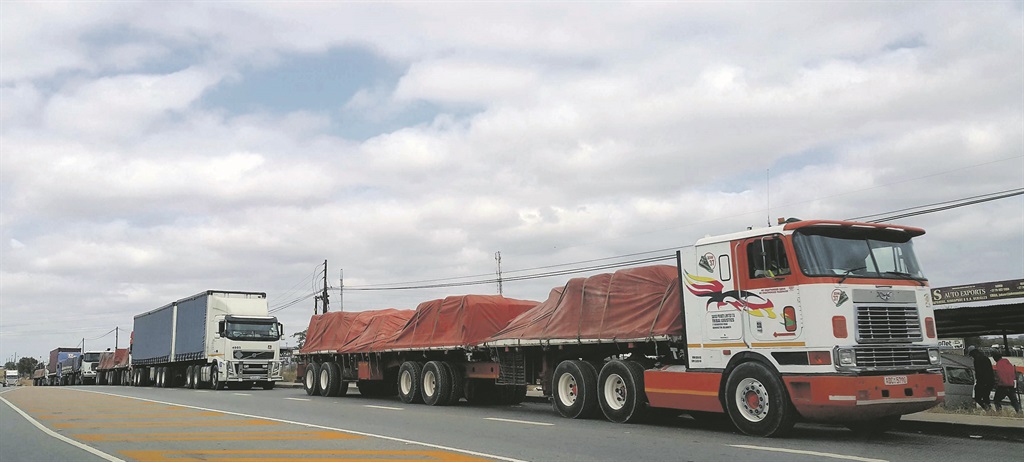
With bilateral talks set to resume again, Zimbabwe makes transport demands and SA disputes surcharges
Zimbabwe is fighting South Africa’s transport requirements governing the export of its pharmaceuticals.
Pretoria wants President Robert Mugabe’s government to reduce the import duties and restrictions that Harare has introduced.
Trade Minister Rob Davies met his Zimbabwean counterpart, Mike Bimha, in Pretoria on August 4, but the two were unable to find common ground.
Another meeting has been scheduled for this week to resolve the impasse.
South Africa and Zambia are Zimbabwe’s biggest trade partners in the region, according to Mugabe’s state officials.
However, Zimbabwe complained that its import bill was ballooning because of the unnecessary shipment of goods into the country from South Africa.
Mugabe’s ministers also charged that the imports were making the local industry noncompetitive.
South African companies operating in Zimbabwe include Pick n Pay, Impala Platinum, Sibanye Gold, Tiger Brands, Tongaat Hulett and PPC.
Bimha said: “The meeting with South Africa’s trade and industry minister covered measures [import restrictions] we have taken.
“We also discussed South Africa’s requirements stipulating that our pharmaceuticals, exported to and through South Africa, be airlifted to OR Tambo International Airport. This makes them expensive because of the air transportation costs involved.”
He added that, although South Africa had these requirements in place, Zimbabwe did not have such conditions and, instead, allowed “South African-made pharmaceutical products to pass through Beitbridge”.
This was making medicinal products manufactured in South Africa more competitive, he said.
Bimha denied that South Africa’s pharmaceutical transport requirements were a way that the country was hitting back at the import restrictions introduced by its northern neighbour last month.
However, government sources in Zimbabwe said that South Africa had intensified efforts to have Zimbabwe lower duties imposed on some products, after introducing limits on the shipment of these products into Zimbabwe.
Following the deadlock over this matter at their recent Pretoria meeting, the two ministers agreed to refer the issue to South Africa’s health ministry, which is expected to come up with a position before this week’s discussions.
The venue for these talks has yet to be confirmed.
“South Africa made its demands and gave a two-week deadline regarding its priority list of products, after the [Zimbabwean] minister’s refusal to give in on import restrictions,” said a source involved in the negotiations.
Bimha said Zimbabwe would consider whatever South Africa would bring to the table.
The upcoming trade discussions would precede a summit of Southern African Development Community (SADC) trade ministers.
South Africa was also seeking the reduction of duty on 112 tariff lines that it believed Zimbabwe did not have production capacity for, out of as many as
1 000 products.
Davies said: “On August 24, there should be an agreement reached where there are a series of surcharges and additional tariff increases ... applicable to the export interests of South Africa.”
He added that Zimbabwe should have followed due procedure in imposing import restrictions.
“We want a greater understanding of rules – when and where potential suppliers can use the mechanism for permits,” said Davies.
Bimha disagreed, saying that the SADC protocols only required that countries taking such measures explain and justify their rationale for doing so.
He added that he had shown the effect of imports on his country’s economy, which had a bloated import bill of $6 billion (R80 billion) against exports of $3 billion.
He explained that this situation was “not sustainable”, insisting that Zimbabwe would continue to bring in raw materials and capital goods, while imports for individual consumption were still allowed.
“We have demanded that they give us a list of products which they want us to consider in terms of phasing down duty,” Bimha said.
“Our response is that we would want to carry out consultations regarding this.”
Economists in Zimbabwe said the country needed to ensure that capacity in industry and manufacturing was boosted first, before imposing restrictions which could lead to shortages. Industrial capacity currently stood at below 40% as the country struggled to grow amid projections of a further slowdown in most sectors.




 Publications
Publications
 Partners
Partners








